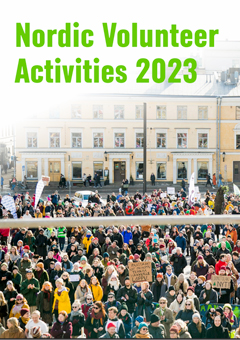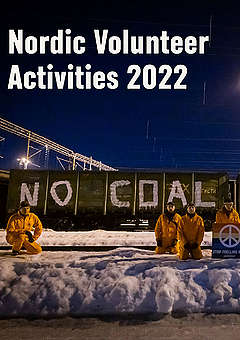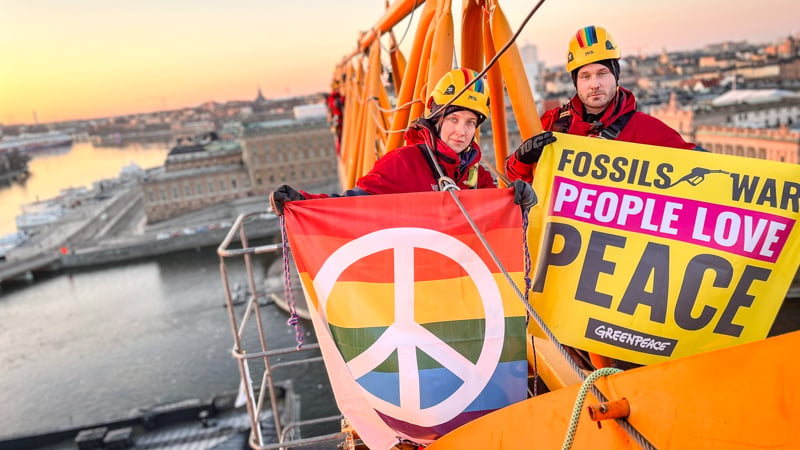
Civil disobedience
Civil Disobedience is part of Greenpeace’s DNA. For more than 50 years, Greenpeace activists have been using peaceful tactics and Civil Disobedience to campaign against dirty corporations who are ruining the future for all of us. We are always peaceful and we always take personal responsibility for our actions.
🇫🇮 Read the page in Finnish here*
Many of us are feeling more and more desperate about our leaders’ lack of action and denial of climate science. Our planet is cooking while emissions continue to rise. A million species are now at risk of extinction, and thousands have been lost before them. Our leaders’ empty words will not save nature and our climate. We believe civil disobedience is an important tool to bring the change we so desperately need.
What is civil disobedience and why do we do it?
Civil disobedience is a selfless and morally motivated act of breaking the law or social norms in order to prevent harm or create positive change for fellow human beings and society. Greenpeace uses civil disobedience because we believe, along with many others, that it is our moral duty to act to protect our planet, the only home we have.
Our legal system is not always in line with our moral consciousness, what is legal is not always morally justifiable and what is illegal is sometimes morally justifiable. For example, the oil companies that drill for oil and make billions in profits knowing that it is escalating an already burning climate crisis where people, especially in the global south, are forced to flee their homes and houses due to drought, floods or other extreme weather. They may act legally, but it is not morally justifiable. In a democracy, it is important that citizens are independent thinking and acting individuals with their own moral compass, sometimes this means that we become disobedient citizens.
Greenpeace uses civil disobedience as a last resort. Before we even consider direct action, we spend a lot of time gathering evidence, investigating the problem and finding solutions. We work to be constructive, we don’t just point the finger at the problems but also at the solutions that exist. Greenpeace’s thorough preparatory work means that we can confidently stand behind our actions.
Civil disobedience is a safety valve in a democratic society. The willingness of ordinary people to carry out civil disobedience to fight against unjust and nature-destroying companies and leaders shows how serious the issue is. Greenpeace activists are willing to take risks to stand up for the planet we all depend on.
What is it like to be an activist with Greenpeace?
Greenpeace activists are trained, committed and courageous. But they are also just ordinary people doing extraordinary things to safeguard our future.
Our activists work together and have each other’s backs, and future activists should be prepared to commit to this strong sense of team spirit.
Activism can be tough, there are highs and lows and being involved in an action is both exhilarating and exhausting. Yet you can also be guaranteed a safe environment, many laughs along the way plus new skills, new friendships and big adventures.
The safety of the activists is always the number one priority during activities, and Greenpeace provides an extensive Duty of Care package for activists and volunteers who engage with Greenpeace. We ensure, to the highest reasonable level, the physical and psychological well-being and security of our people before, during and after involvement in an activity. Greenpeace also offers first aid training for all activists.
I always feel a sense of community and camaraderie when we get together and prepare for actions – it feels like a family gathering!
Pattie, Greenpeace activist
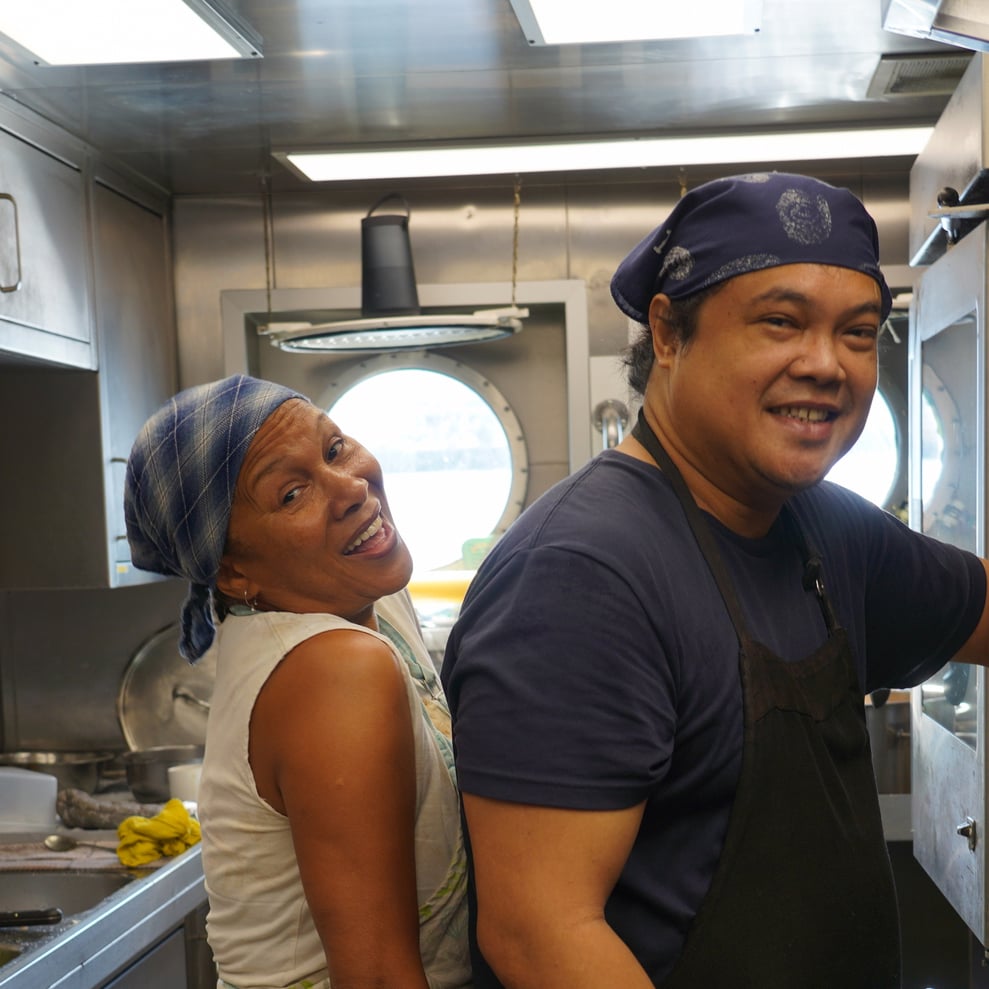
Who can be a Greenpeace activist?
In short – everyone (as long as you are over 18 years old)! You don’t have to be extra brave or super fit to be a Greenpeace activist. At Greenpeace, we believe that there are many ways to be an activist – climbing oil rigs or blocking a huge ship in a kayak isn’t for everyone. Greenpeace’s volunteers are also activists who do amazing work to spread awareness. Activism is also about painting banners, lobbying politicians through letter writing, doing talks at schools, or helping with research at the Greenpeace offices or out in the field.
Being an activist is about dedication and willingness to stand up for our future and create change. And the more we are, the more powerful we’ll be.
We’re committed to help with any practical or financial barriers that might stop you being able to join us. Wherever possible, we’ll accommodate your access needs.
All you need to be an activist is a commitment to protecting our planet and the people on it. Does that sound like something for you? Register your interest here!
How do I become an activist for Greenpeace?
The first step towards becoming an activist with us is to attend our full-day Introduction to civil disobedience training. In that training, you will learn more about peaceful civil disobedience and how Greenpeace uses the method. Sign up here!
The next step is a weekend-long Nonviolent Direct Action (NVDA) training course. This course teaches you how to take action safely and efficiently. During the weekend, you have the chance to connect with other activists and challenge yourself in a safe environment. The training covers everything from how to physically and mentally prepare for taking action, to de-escalation tactics, safety, legal procedures, blocking techniques, media training and much much more. People who successfully complete this course are ready to take action with Greenpeace.
Greenpeace activists can then choose to sign up to one of our specialist action teams, e.g. the climbing team, the kayak team or the boat team, all of which have extensive and thorough training. The action teams meet several weekends a year to maintain their knowledge and skills, weekends which are also perfect opportunities to socialize with fellow activists!
Greenpeace also provides other training programs for volunteers, learn more about volunteering here.
All training programs are free and Greenpeace covers all expenses for activists during training and activities, such as travel, food, accommodation etc.
Become a climate and environmental activist and make a difference!
The more we are, the stronger we become! We look forward to hearing from you.
Annual Nordic volunteer reports
Find out more about what Greenpeace volunteers have achieved over the years in our annual volunteer reports.
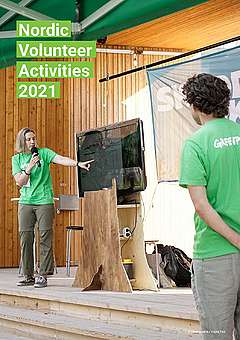
Lue koko vuoden 2021 raportti täältä

Lue koko vuoden 2020 raportti täältä
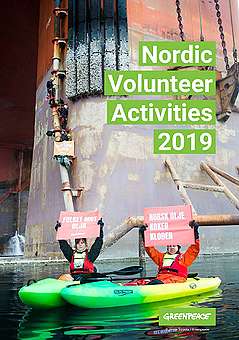
Lue koko vuoden 2019 raportti täältä
Further reading (in Finnish)
-
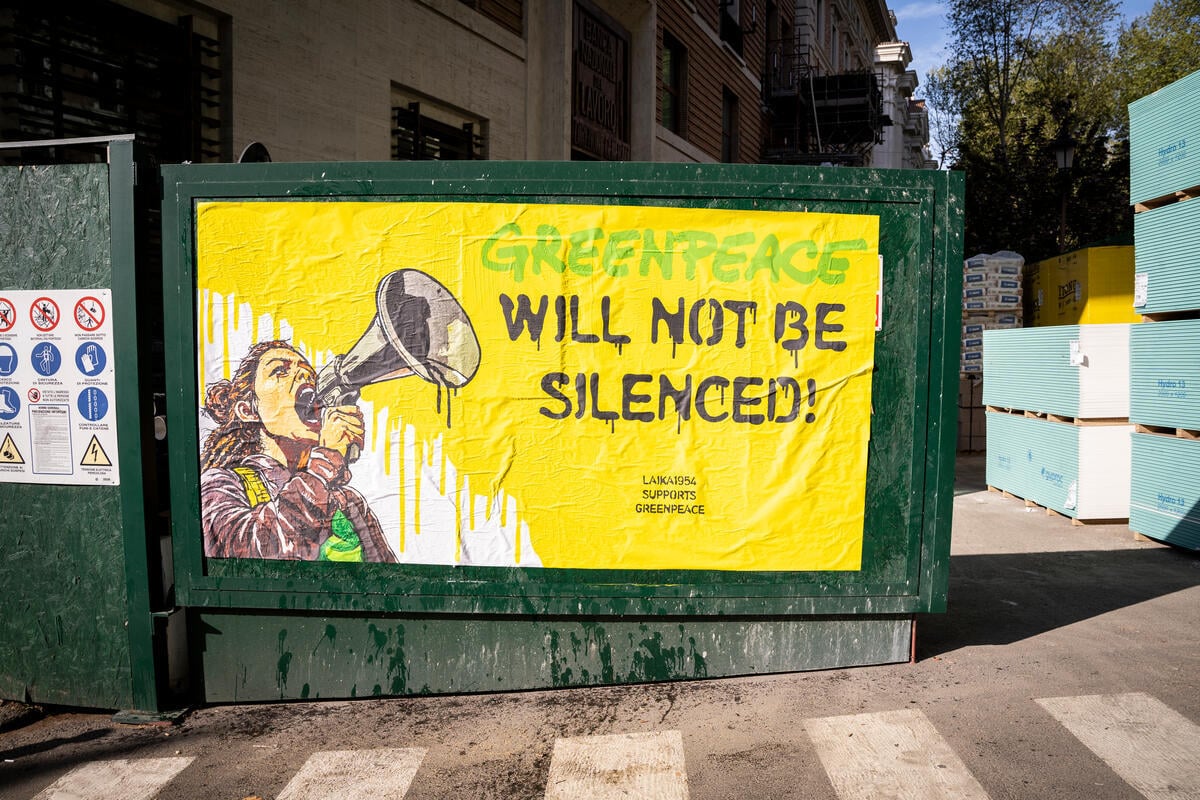
5 vinkkiä öljyjätiltä: Näin vaiennat ympäristöjärjestön!
Kiusaavatko ympäristöä ja alkuperäiskansojen oikeuksia puolustavat aktivistit öljyputkihankettasi? Ei syytä huoleen! Tässä viiden kohdan helppo strategia, jolla hiljennät ikävän ympäristöjärjestön ja lähetät samalla varoittavan viestin kaikille ihmisoikeus- ja ympäristöaktivisteille. Oppaana toimii Energy Transferin oikeusjuttu Greenpeacea vastaan.
-
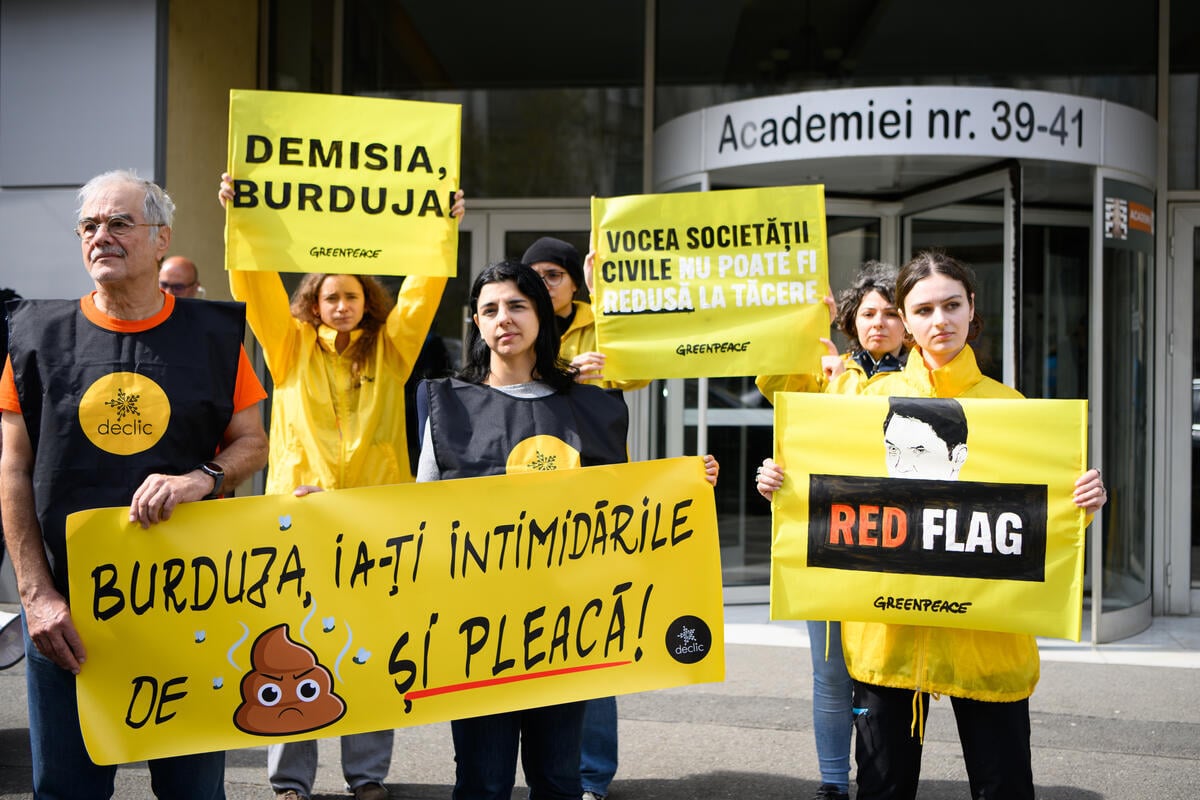
Romanian valtion kaasuyhtiö perääntyi vaatimuksesta sulkea Greenpeace Romaniassa
Romanian valtion kaasuyhtiö Romgaz oli nostanut kanteen, jossa se vaati Greenpeace Romanian sulkemista. Oikeudenkäynnin oli määrä alkaa keskiviikkona 11. kesäkuuta. Romgaz jätti kuitenki tuomioistuimelle pyynnön kanteen peruuttamiseksi 11. kesäkuuta aamulla.
-
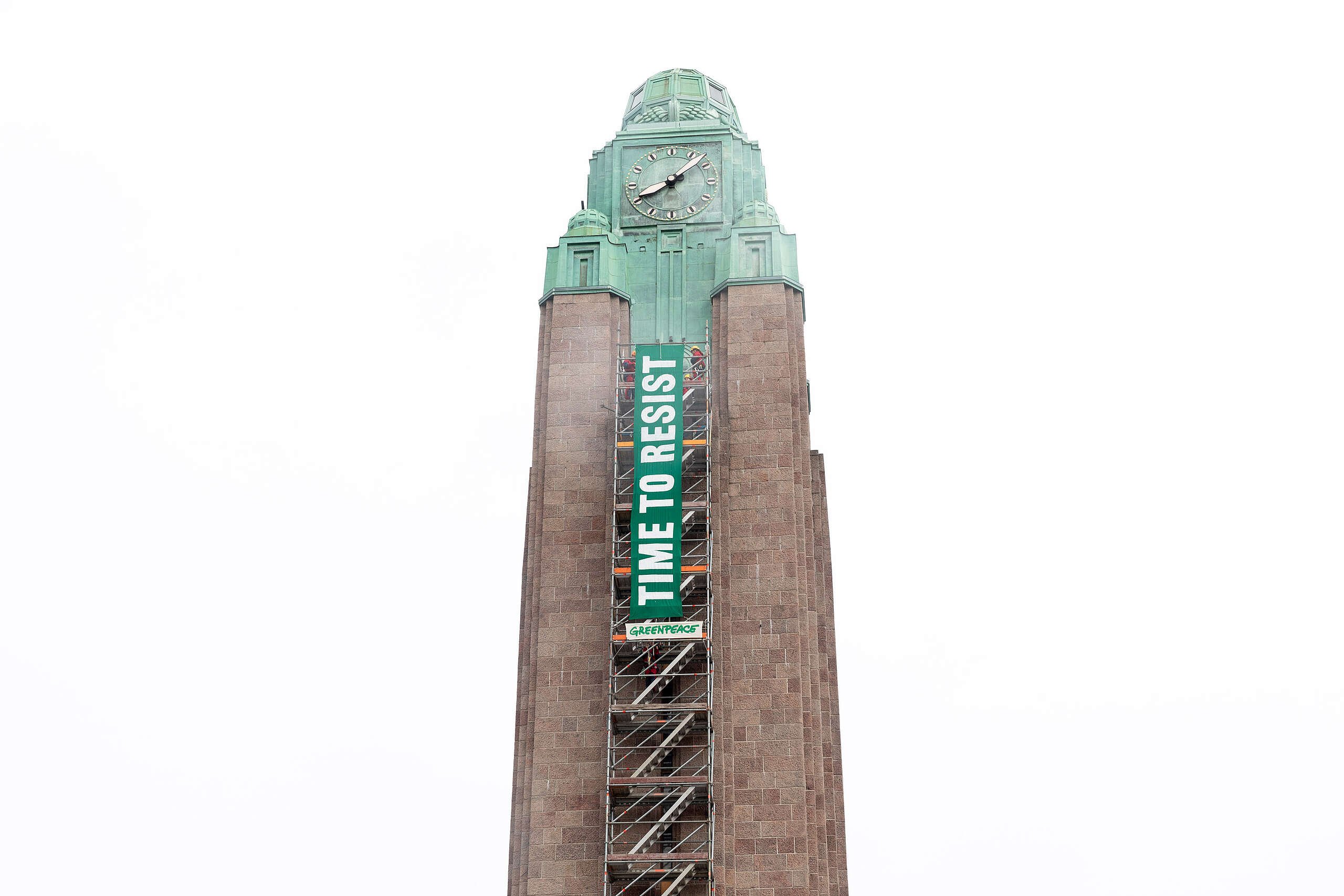
Helsingin aseman kellotornissa kehotetaan vastarintaan
Varhain keskiviikkoaamuna Greenpeace Nordenin aktivistit nousivat Helsingin rautatieaseman kellotorniin ja levittivät yhdeksän metriä korkean banderollin.

